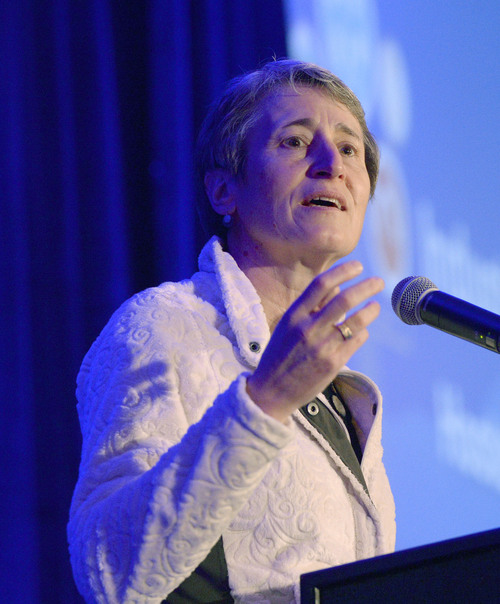This is an archived article that was published on sltrib.com in 2014, and information in the article may be outdated. It is provided only for personal research purposes and may not be reprinted.
Does America need another Civilian Conservation Corps? The Secretary of Interior thinks so, and she's not asking the taxpayers to pick up the check.
When the nation was in the throes of the Great Depression, the CCC was created as one of several New Deal programs of President Franklin D. Roosevelt to put unemployed Americans to work improving the nation's public lands.
Over its nine-year life, the CCC operated 116 camps in 27 of Utah's 29 counties. About 45,000 workers, roughly half them from out of state, received $30 a month, with the stipulation that $25 of it was sent home to their families. The men (and it was only men) were put to work on building dams, trails and other infrastructure in the state's national parks and forests and other federal lands. They built everything from a rodeo grounds in Tooele to campgrounds in Logan Canyon to a bridge over the San Rafael River.
So now, 80 years later, the nation finds itself in a similar spot. Even as the economy slowly improves, unemployment remains stubbornly high. And those same national parks and forests have long lists of maintenance and improvement projects that aren't getting done.
Interior Secretary Sally Jewell, a former CEO of REI, chose Salt Lake City's Outdoor Retailer Winter Market to describe the idea because she was asking the outdoor industry to help pay for it. This time, Jewell says, it wouldn't be the federal government funding the CCC, but the government would see the benefits. She wants to raise $20 million from the private sector and recruit one million volunteers in the next four years, and she puts a particular focus on young people and veterans.
The outdoor retailers are an obvious target for fund raising. One million people patching trails and reseeding forests has to help sell a few hiking boots. And each one would go back and tell his/her family about America's jewels in the West.
They also go back with a better awareness of not just conservation but also multiple uses. The abstraction of Ford commercials is replaced with a better understanding of the people who live and work on public lands, and that makes the nation's shared ownership a little less strained.
Logistically, that $20 million doesn't seem like enough to build a lasting infrastructure, so Jewell needs to ensure she isn't creating something that will eventually turn to Washington for help. But if it's seed money for growing an even larger private effort, the fruits will be enjoyed for another 80 years and beyond.



